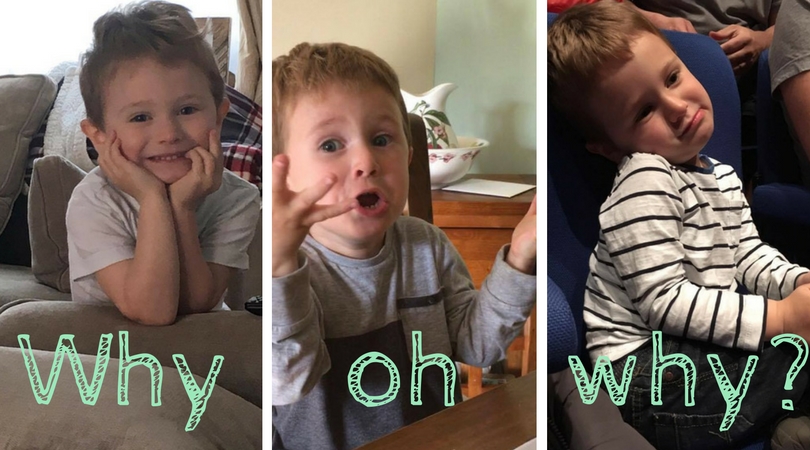
Know When You’re Having Trouble Coping As A Mum

*Collaborative Post
The view that society has on motherhood as a whole is still quite a dim one. Motherhood is promoted as one of the most rewarding times in your life and something to celebrate, which is all true but the problems of mothers that are having trouble coping or dealing with mental health are still not addressed as widely as it should be. Many of us still don’t think to ensure whether or not the mothers we know are dealing with it well. If you’re feeling stressed, depressed, or simply pulled in a hundred different directions, it is time to ask yourself whether you are coping.
The new mum blues
You can’t address mental health and motherhood without talking about postpartum depression. This is a particularly strong emotional condition most often felt in the early months and the first year after a pregnancy. The causes are hard to pin down, but the huge hormonal shift and the newly added stress of caring for a baby are routinely identified as two big contributors. Some people do make the mistake of believing that all postpartum depression goes away on its own. While this can be an individual’s experience of it, it can also develop into severe long-term depression without treatment, so it is important to address it.
When was the last time you had time to yourself?
Mothers are expected to (and expect themselves to) sacrifice a lot for the sake of their child. In many women, the feeling reaches down to an instinctual level. Many women will go a long time without really indulging their own needs and not even feel it until they reach a tipping point. It’s important to be a little selfish from time to time. Whether this means finding a childminder or relying on your family, taking a break to go to the spa, enjoy a night at the cinema, or even to get some much-needed sleep is important. The responsibility of a baby is too much for anyone to cope with entirely alone and it’s not a failure to admit that you could use a break.

Isolation’s a killer
One of the most common sacrifices is the loss of social bonds to friends and family. You might not have the time or energy to go see people as often as you did before. As part of those breaks, you should force yourself to take, include social calls to friends and family. Many mothers find that socialising with other mums can be extremely helpful, as well. Besides swapping practical advice, emotional support can be more effective when it comes from someone who understands your challenges. www.howstuffworks.com shows that there is an increasing range of apps and options for mothers who would like to find other mums to socialize with, it might be worth looking into them.
Stress has serious effects on the body
Leaving your parental stress unchecked can be a lot more dangerous than you might assume. Symptoms of stress don’t just include a bad mood but can have more noticeable repercussions. The lack of sleep you have been experiencing might not just be down to the new baby, for instance. It can also cause serious fluctuations in weight and can even contribute to or cause cases of back or joint pain. In the long term, stress can put your heart at risk and lead to chronic pain, so it is worth addressing and finding techniques on how to manage it now, while it’s still manageable. This could include researching what supplements are best for anxiety, to finding hobbies like meditation and yoga to calm your mind.

Look at your coping mechanisms
When dealing with stress, we all tend to find coping mechanisms. Some, such as exercise, hobbies, or long dips in the bath, are extremely healthy and are shown to make you more emotionally resilient and healthy. Other habits can be extremely dangerous. Take a closer look at how you cope with stress. If you start relying on self-destructive behaviours such as frequent alcohol consumption, self-medication, self-harm, or angry outbursts, you may need help from services like www.arcproject.org.uk/. It can be hard to identify the tipping point of when a coping mechanism becomes a psychological trigger for harmful behaviour. If your family is showing concern for you or you tend to hide your true feelings, that may be a sign that it’s becoming a problem of its own.
Living with colic
A new child brings with it a lot of stress that many parents have trouble dealing with and those that live with colic will feel that more keenly than most. Infantile colic isn’t life-threatening, so a diagnosis should cause no long-term anxiety. However, the abdomen pain, as well as the crying and sleepless nights it causes, can easily fray the nerves of any parent and cause them a great deal of worrying and emotional pain. While colic does go away on its own, it’s a good idea to talk to the doctor, as they can identify what type is it and help you find ways to soothe your baby and may recommend coping strategies for the parents, as well.
Staying on top of it all
No matter what age your child or children are, the responsibilities they add to your life don’t go away. Sometimes, stress can be a result of simply having too much to stay on top of. As children grow up, you can assign them chores and lessen the load on your own back. Before that stage, you should look at streamlining your responsibilities. Prioritise what you have to do and know what you can put off. You don’t have to give into the pressure to have an uncluttered bathroom if you have a whole host of appointments to go to and baby products to buy. Make life as a mother more efficient and know when you can give yourself a break.
Know when you need help
The number of people who live with severe undiagnosed mental health issues is staggering. There is still a significant social stigma attached to depression, stress, and anxiety that can cause many of us to feel sick even at the thought of getting diagnosed. However, no matter who you are or what your position in life is, you should take the time to take the www.forbes.com self-test to see whether you might be suffering from depression. Self-diagnosis is no diagnosis, of course, but recognizing the signs of mental health issues can be the wake-up call that encourages you to get help. Leaving mental health issues covered up tends to only lead to them getting worse.

Pay attention to your relationships
A baby can change all the relationships in our lives, including those closest to us. Our other children may feel like they are left out, and our bond with our partners can feel strained or neglected. You have to make time to maintain your relationships after your baby. It’s easy to tell ourselves that our baby is more important and that they come first. It’s certainly true, but that doesn’t mean that our other relationships can be left behind. Not only does is strain those relationships, it can cause feelings of guilt and resentment in mothers that can feed into depression, stress, and other mental health issues. Just as you should take the occasional break to be selfish, you should try and take breaks to care for others in your life, too.
Build better habits
The idea that you can “power your way” through mental health issues is a problem. However, there is significant evidence that becoming physically stronger contributes to mental resilience and healthier coping mechanisms. Look to the three pillars of your health. If you’re having trouble finding the time to prepare healthy meals, look for relatively low effort alternatives like salads. There are apps that can help you measure both your exercise and diet throughout the day, giving you simple instructions to ensure you’re caring for yourself. As far as sleep is concerned, follow the tips at www.telegraph.co.uk and help your baby sleep through the night sooner so that you’re able to do the same. If you need help with any of the above, there’s plenty of information on the net that can make you fit your needs to your current lifestyle.
Perception matters
How we see the world and the viewpoints we expose ourselves to have a deeper impact on our mental health than we might think. This doesn’t mean we should ignore our problems. But it does mean that we shouldn’t fixate on other distressful or negative influences that we don’t have to deal with. For instance, negative media influences such as TV agony aunt shows have been shown to worsen one’s mood. Similarly, we don’t have to take part in negative conversations. Maintaining a positive attitude really can make a difference in the long term.
Practically and emotionally, there is quite a lot you can do to deal with the pressure of motherhood and how it changes your life. There are support structures out there, whether in family, friends, groups you can turn to, or professionals. Don’t feel like you have to go it alone.
*This is a collaborative post. For further information please refer to my disclosure page.




